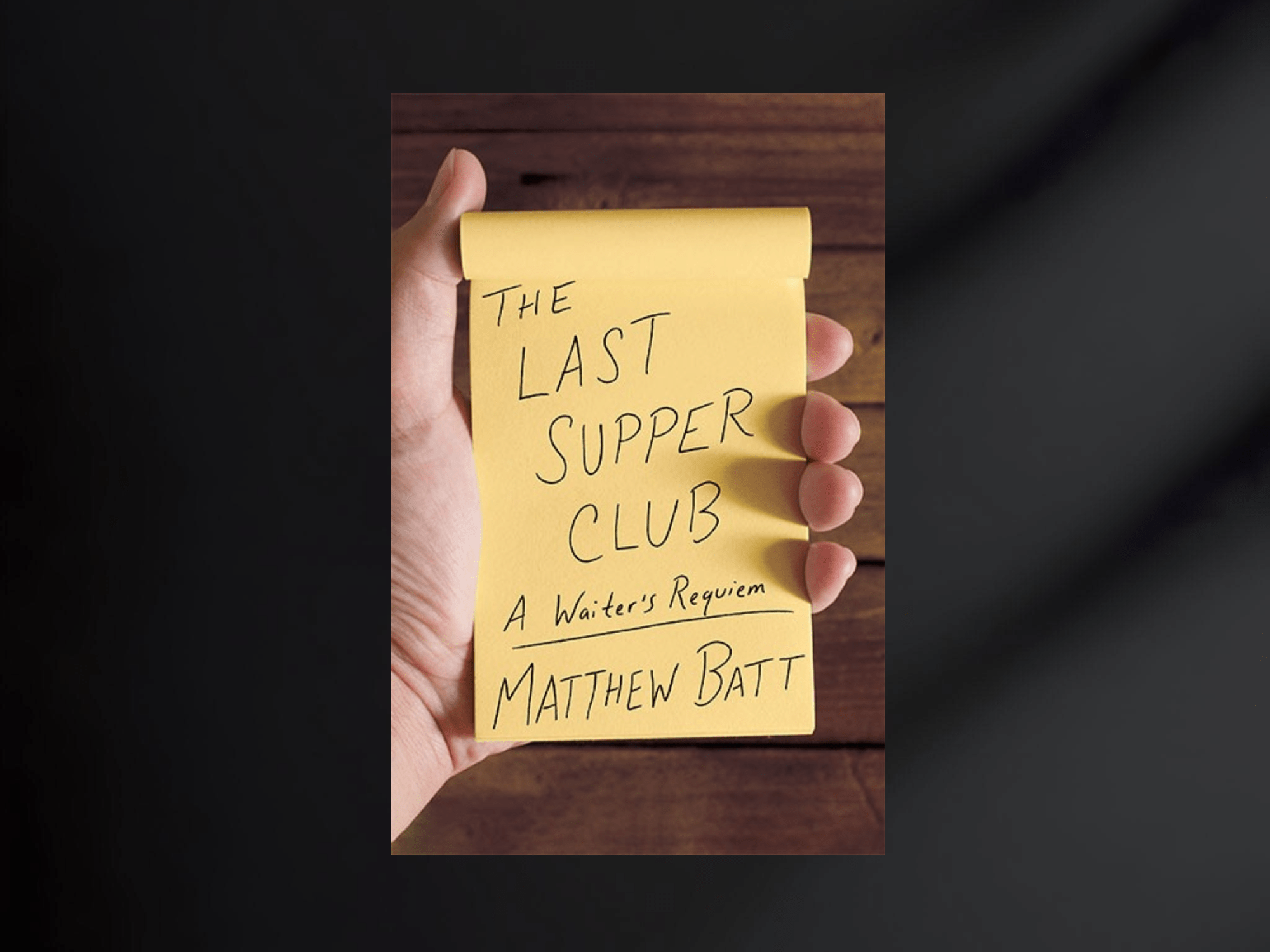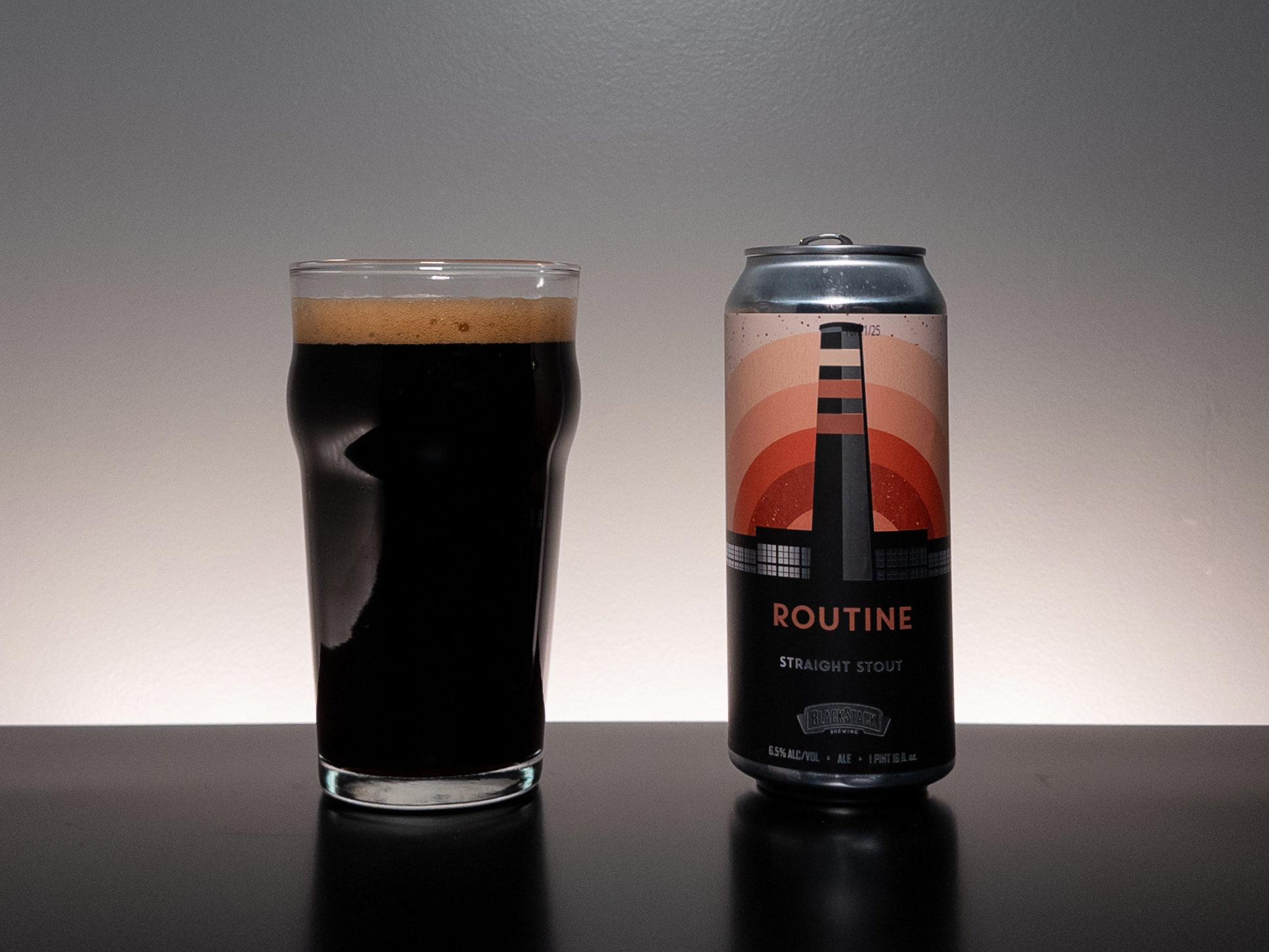The Last Supper Club: A Waiter's Requiem (University of Minnesota Press, October 2023, 272 pages) covers local author Matthew Batt’s sabbatical (sabbatt-ical?) from teaching creative writing, when he took on two restaurant side hustles to square his personal finances with his reduced academic salary.
The first gig, at a humdrum restaurant on Lake Como in St. Paul, simply helped Batt keep up with his monthly mortgage and student loan payments. The second gig was extraordinary: Batt scored a server position at The Brewer’s Table, the award-winning fine-dining restaurant that opened as part of the Surly Brewing Co. complex in 2015. (If you’re unfamiliar with The Brewer’s Table trajectory and want to avoid spoilers, then stop reading now.) Even after the sabbatical ended, Batt continued to work at The Brewer’s Table until its untimely closing in 2017.
On one level, Batt portrays himself as a fish out of water who helps birth The Brewer’s Table and waits tables through its infant and toddler years. Although he worked in restaurants as a college and graduate school student, at The Brewer’s Table, he’s older and more professorial compared to his hip co-workers. All of the restaurant challenges feel frothy, fun, and fairly low stakes. Will Batt’s section get slammed on opening weekend? Will the five-top with three kids send back the squid ink pasta? Will Jason DeRusha ever write a review? Which exotic ingredient tops the octopus dish: espellette powder, juniper skyr, or togarashi crumble? (Answer: None, it’s sumac dust!)
Batt takes the reader from a zero depth entry romp down a gentle incline until we’re ears deep in questions about time and money. As long as you have to spend your one wild and precious life earning wages, for whom and with whom should you spend your working hours? Doing what? For Batt, restaurant work achieves the sublime. The Last Supper Club is not a Bourdain-style confidential with monsters lurking behind every mise-en-place (with the exception of Surly founder Omar Ansari, who comes off as a bit of a capitalist ghoul). Batt finds a surprising amount of fulfillment in restaurant work and cultivates heartwarming friendships with his co-workers. There’s even redemption for the regular who skulks into The Brewer’s Table, requests the hottest server’s section, and sips vintage reserve brews while reading pervy books.
The title does say requiem, but I took The Last Supper Club more as a prayer of blessing and adoration for restaurants and service workers. Religious-tinged imagery shows up in unlikely places: Batt personifies plastic squeeze bottles that line up “patient and ready as novitiates.” Likewise, stacks of dishes wait for dinner service to begin, “quiet and pious as ranks of nuns.” He exalts the alchemy of restaurants that turn out excellent food combined with impeccable service, likening a fantastic meal to transubstantiation. Batt traces this reverence for restaurants back to a memorable dinner he shared with his mother as an adolescent at a mob-destination supper club near Mukwanago, Wisconsin, a chapter that also works as a lovely, stand-alone essay.
Batt’s a great writer. He should be good, based on the many degrees he’s still paying loans on: “undergrad, an MA program in English, an MFA program in creative writing, and a PhD program in creative writing and literature.” He excels at descriptions, and The Last Supper Club is worth the book jacket price just for the sections on Surly’s setting, where “slow-moving cars prowl for parking spots” on the “back forty of Surly’s vast parking lot” next to “a wasteland industrial lot where nothing but postapocalyptic, disused grain elevators stubble the landscape like tombstones to the titans.” Actually, I’d buy the book just for the descriptions of Batt’s co-workers’ facial hair, like the “server with a moustache as big as a bird of prey” or the front-of-house staff person with “a lovely, lush, long beard and hair that rivals any Old Testament prophet.” My lone grammatical quibble is that I don’t love “epiphanically” as an adverb, but that’s totally subjective, the equivalent of a diner complaining that a micro cilantro garnish tastes like soap.
Anyone who’s ever had fleeting employment at a beloved workplace, restaurant or otherwise, can relate to Batt’s memoir. For me, my most perfect and impermanent job was at a nonprofit library where the board of directors, every single one of them a Mr. Burns-clone, squandered an endowment on pricey consultants and unnecessary technology. Then, when the balance sheet turned red, they laid off all of the librarians who did the actual, meaningful day-to-day work. Most of us, we’re just game pieces played by the owner class, private equity suits, and C-suite cutthroats who slide us around as they play capitalism like a board game, making vicious moves based on profitability and efficiency.
Batt reminds us to soak it all in when we find something we love to do, and people we love to spend time with while doing it, for an organization who appreciates us, however briefly.







